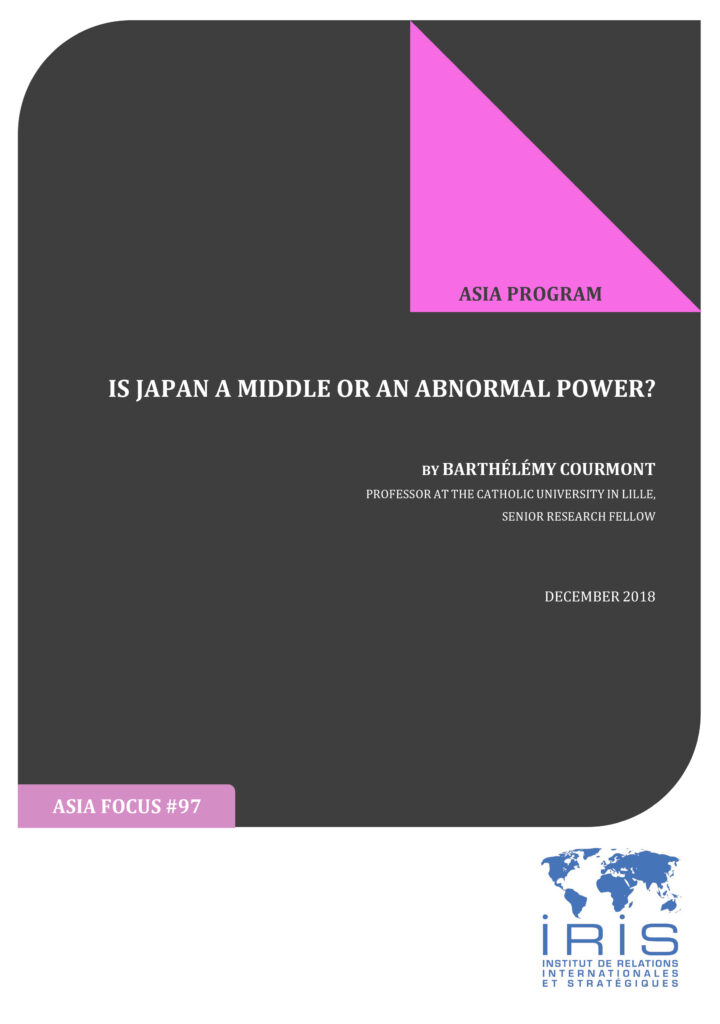Notes / Asia Focus
20 December 2018
Is Japan a Middle or an Abnormal Power?

Does contemporary Japan offer a relevant example of what one defines as a middle power? To the contrary, does its “abnormal status” challenge its inclusion into such a category? Although constantly exposed to various definitions and interpretations, the concept of a “middle power” usually embraces three aspects of diplomacy: behavior, status and strategy. However, one may consider that Japan does not fit in these characteristics, or more precisely that it does not equally balance them. At the same time, Japan’s post-World War II interpretation and practices of middle power have been closely associated with its pacifism and internationalism. As Keio University’s professor Yoshihide Soeya points out, “Japan’s diplomatic behavior has essentially reflected ‘middle-power internationalism’, while its status has been uncertain and its strategy confused or non-existent” (Soeya, 2012). This singularity most often describes Japan as an “abnormal” power, a concept it has developed in the 1950s, in parallel with its political recovery and its economical spectacular resurgence. Japan renounced itself to being a “normal” power, which means more specifically that it chooses what characteristics it emphasizes on, and decides in which situations it will not assume any sort of responsibilities…

